If you’re old enough or if you’re a student of history, you may know about wartime rations.
Or, if you’ve lived under totalitarian regimes in Eastern Europe or China, you are aware of the fact that people can survive (and even thrive, as population actually grew during those times) on diets consisting of as little as 300 grams of rice/bread per day, and an egg and/or a little bit of bacon/meat a couple times a week. Nowadays, approximately 40% of US adults are obese and food is plenty, not to mention dirt cheap, hence rationing strategies as a topic of conversation may sound surreal even among preppers.
Now, I know what you’re thinking: I’m a survivalist and I’m always prepared for the worst; and it’s true that generally speaking, preppers in the US are already stockpiling nonperishable foods, guns, ammo and similar stuff, even if there’s nothing horrific at the horizon. But sometimes things just go wrong, and you know that old saying: man plans and God laughs.
The topic of today’s article is rationing strategies, as in who will get most food when SHTF, provided you have limited resources and no prospects for the situation to improve in the near future. What would you do with a limited food supply in an emergency, when you don’t know for how long you’ll have to lay low and chew the fat, together with your family and/or friends? Obviously, in such a scenario, food rationing is a nondebatable topic, but how would you implement your plan? Who you’d have to prioritize? Does everyone get an equal share? These are important questions if you come to think about it, and they’ll sooner or later present you with an ethical dilemma: when the survival of the “tribe” is at stake, who eats first and who eats last?
To begin with, you should know that the current “US diet” consists of approximately 2500 calories per day, give or take, which is a lot compared to the rest of the world. By the way, that’s why Americans are among the fattest people on Earth: we eat way too much and often the wrong things. However, in an emergency, one’s nutritional intake may very well be cut in half, or even worse, and that’s on top of the increased psychological stress and physical workload. What does that mean?
Well, you’ll be hungry, scared and tired, which further translates into anxiety, depression, apathy, and if the situation keeps going, your body will begin to fail, tearing through body fat first and then through the muscle. The thing about low calorie diets is that they can keep you alive for a long time, but you’ll have to deal with a lot of bad effects on your state of mind and overall health. With these things established, let’s see the basics of food rationing in emergencies.
Considering a 2000 calorie a day diet, which is what you should be eating normally, a reduced diet would consist in 1500 calories, while the lower limit would be 1200 calories. Depending on how much supplies you do have and knowing that you will not be capable of getting more food, you should start from here, i.e. gather all your food supplies, create an inventory of sorts, then group foods into categories, in order to determine which ones would have to be eaten first (the perishable stuff, obviously).
For example, you could use categories like vegetables and fruits, which are highly perishable, followed by dairy products and meats, cured/canned/dried goods, pasta and grains, cooking/baking supplies and so forth and so on, you got the idea. In the next step, you’ll have to determine (as in count) how much food you have, which may be a pain in the ass, but the easiest way would be to weight the food and have a general idea about how to convert X amount of Y food into Z calories.
It would be great to have prior knowledge (as in a chart with various foods’ nutritional value) about these things, such as how many calories are provided by a can of tuna fish for example.
After you’ve determined how big your food stockpile is, the next logical step is to consider how many people are you rationing for; thus you’ll be able to get the general idea about how long your food supply would last. Obviously, the smaller the portions, the lesser calories, the longer your food supply will last. As a general rule of thumb, adult males require more calories than females, 1700 calories for a male daily vs 1300 calories for a woman.
Age is also a factor when determining one’s daily caloric intake, as elderly people require less food generally speaking compared to younger people. For example, an elderly male requires only 1400 calories per day, while an elderly female can do with 1100 calories. Obviously, these are calorie intake guidelines for the average person, which are not set in stone and can be tampered with in a really bad situation. Just imagine that someone would have to hunt all day, or chop wood or whatever strenuous physical activity; it’s obvious that the respective person will have to eat more compared to, let’s say, a sedentary member of the group. There’s also the issue of people’s different metabolic rates, and so forth and so on, hence rations should be adjusted according to one’s gender, age, overall health, and physical activity status.
Find out our Firefather’s Time-Tested Natural Cures and Household Remedies
Based on all these “stats”, you’ll get the general idea of how many calories each person needs on a given day, and then you’ll have to determine how to deliver the respective calorie ratio based on your food stockpile. Since there are hundreds and hundreds of foods that can be stored, it’s almost impossible to make a comprehensive list here, but here are some basic guidelines:
- a cup of white rice has 686 calories
- a cup of oats has 147 calories
- a cup of cooked spaghetti has 221 calories (2 oz dry)
- an egg has ~100 calories (it’s size dependent)
- 100 grams of ground beef will provide 164 calories
- pork has 250 calories if fresh and 541 if cured
- chicken meat has 200 calories per 100 grams
- 3.5 oz of corn have 354 calories
- 17 oz of baked potatoes have 255 calories etc.
Here’s a comprehensive food nutrition chart, just take a look and you’ll see what’s up with almost every imaginable food’s caloric content. Considering the fact that carb-rich (as in calorie-rich) foods are cheap and easy to store for a long time, it’s very probable you’ll have to eat a lot of those, so keep that in mind while reading the chart above. Speaking of low calorie diets, even in an emergency, less than 1000 calories a day is very dangerous for one’s health, and a long-time caloric intake of fewer than 1200 calories/day would be very hard to implement, as the “subjects” would face having difficulties in focusing on topics or making decisions, and they’d be feeling sad, lonely, numb, not to mention drained both mentally and physically.
But I saved the best part for last: most people tend to believe that even in desperate survival scenarios, the right thing to do is to equally share what food is left among the people in the group. As I already told you, people are far from being equal in this regard, as different folks burn different amounts of calories. If you make equal rations for all the people in the group, smaller people who eventually do less work will get more food than necessary, while bigger/more active people will not get enough food, and that’s not good.
And there’s always the ethical (and sometimes emotional) point of view: in a normal situation, a parent would go to sleep hungry so his/her children could have enough food to eat, but in a survival situation, children and other members of the group (sick people, elderly, women etc) would be relying on others to work and keep them safe, hence it would be a terrible idea (as in suicidal) to keep the latter malnourished.
Let me know your thoughts in the comment section.


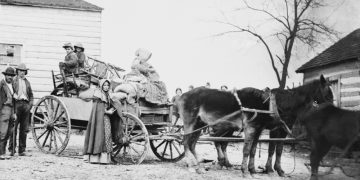


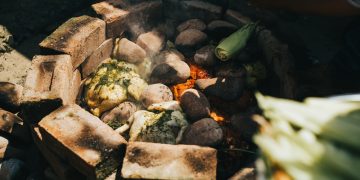
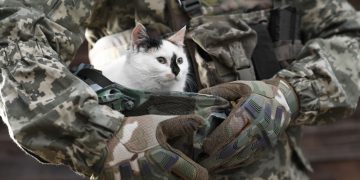



















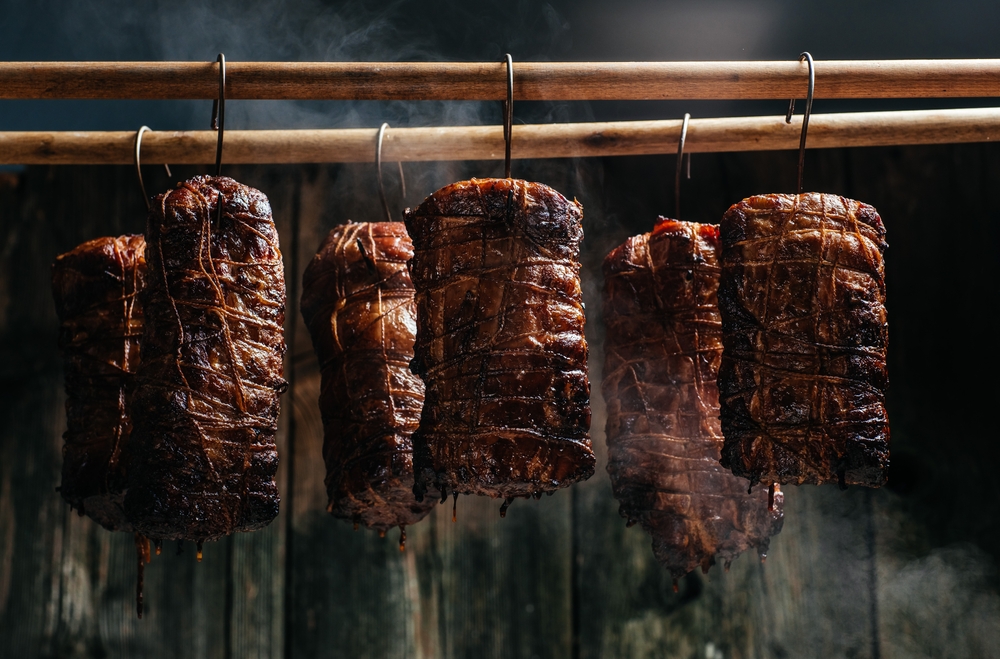

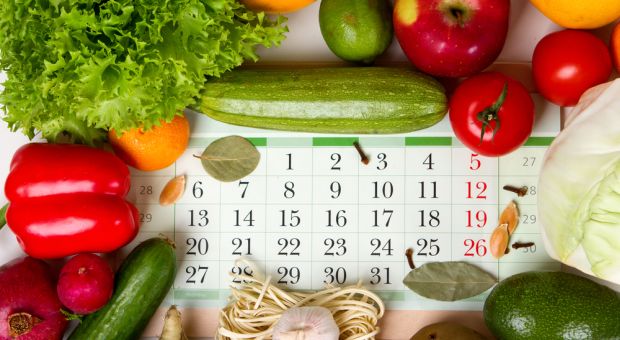

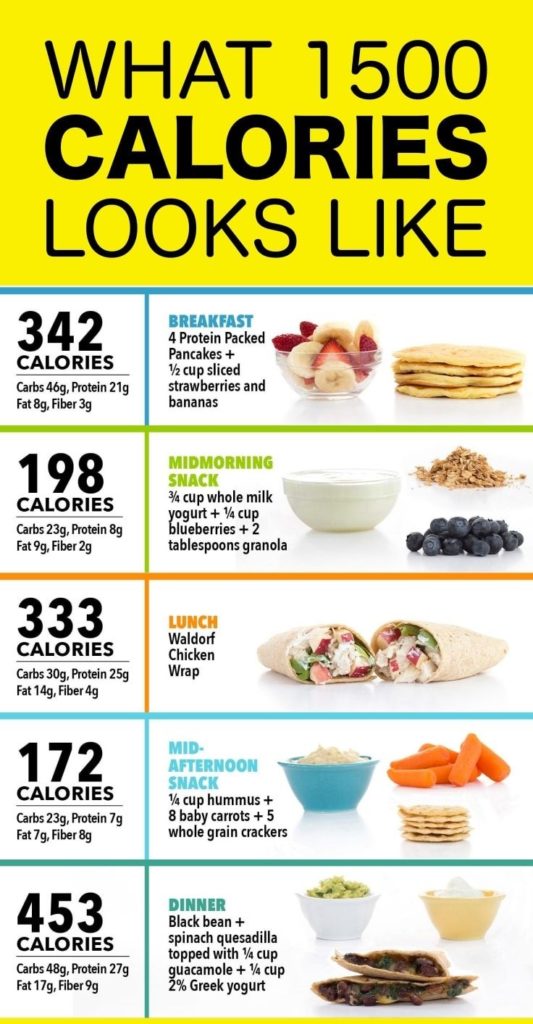















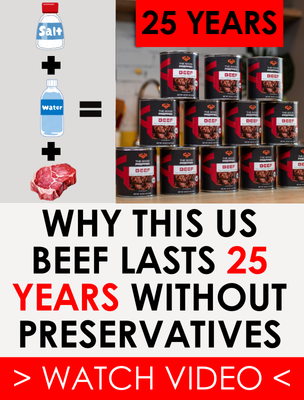

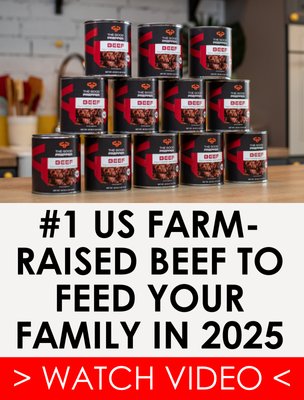

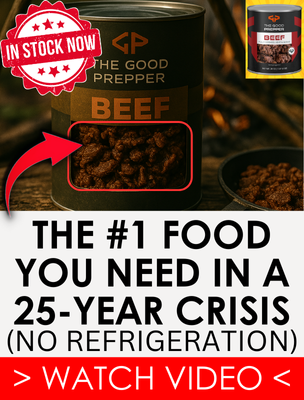

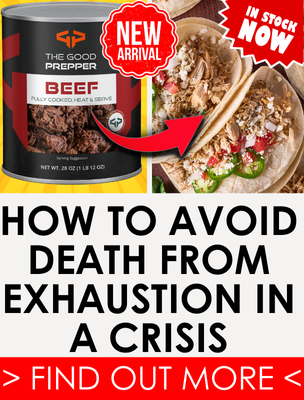


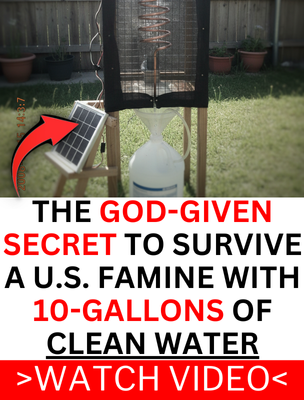



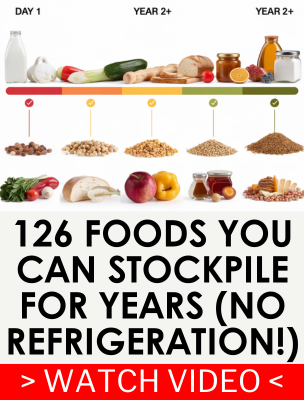
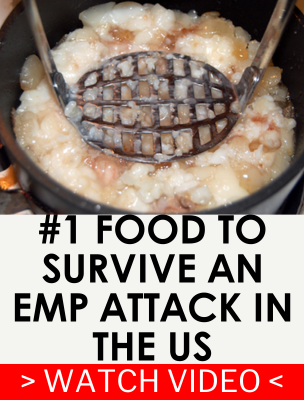
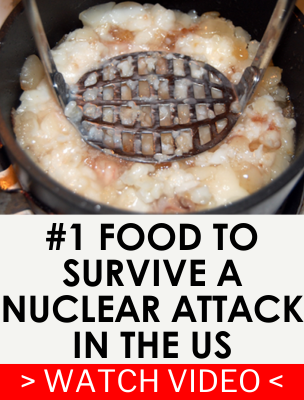


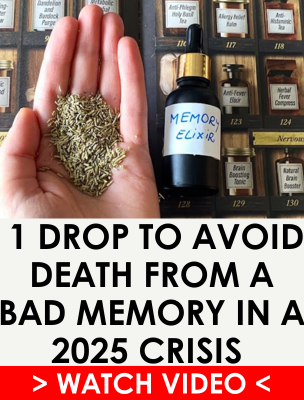



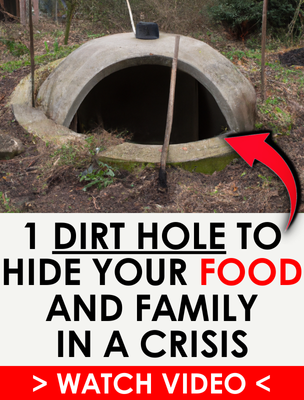
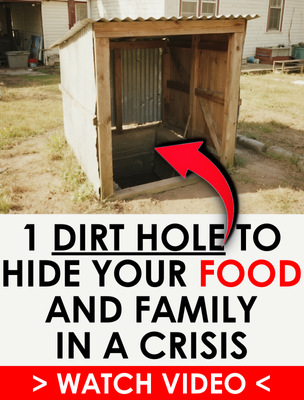


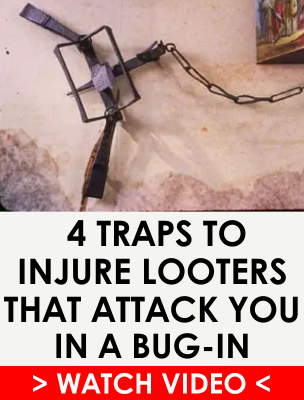






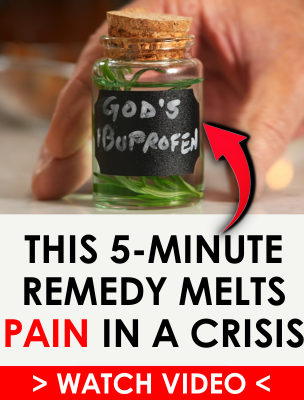
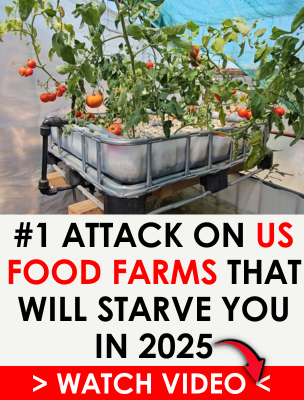
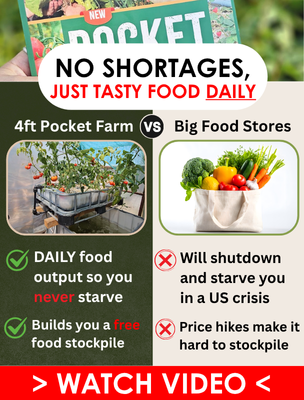








Nice article. I too have considered how best to ration that emergency supply of food, realizing that people differ in their calorie requirements. While my planning/buying is based upon carefully measuring ingredients in order to make three nutritionally balanced family meals per day and give each household member 2000 calories per day, that is not exactly how I intend to feed everyone. My intention is, when starting on food rationing, that any household member who is 20 or more pounds over their ideal Body Mass Index (BMI ) will go on half rations (1000 calories per day) until they have reached the upper level of their ideal BMI. The weight reduction may not take very long if people are doing a lot of physical labor (gathering wood, hand-washing laundry…). And the food supplies will stay under lock and key and are not the kinds of foods for quick snacking anyway. Obviously, some household members may not need a full 2000 calories per day if they are not doing a lot of physical labor and food portions can be adjusted to give younger people more calories and the elderly a little less calories. The way I look at it, the less that food is wasted and the less over-feeding that occurs, the longer those emergency food supplies can feed a family.
I’m probably one of those “20 lbs over” people, and caution you against your strategy of cutting to 1000 calories, at least not suddenly. It takes time for the body to begin to burn fat, and the physiological transition can render your people useless or worse if not done properly. I certainly appreciate and understand your essentially accounting philosophy, but a sudden cut from 2000+ calories to 1000 will change personalities and productivity. I know because I have tried it. I became irritable, argumentative and unable to concentrate to complete tasks. At 1000 calories, probably delivered in 2 or 3 feeds, blood sugar crashes repeatedly throughout the day, Depending on the individual’s personality, they may become hostile, unable to make decisions or to understand instructions and execute them. Some may become violent. For an extra 500 calories, from me you get a good analyst, engineer and good shot for guard duty. It may be worth the extra 500 calories of food (in our case, I contributed more than 50% of the group’s food and sprouting seeds) to keep me useful. If needed to get all down to a lower calorie count, do it over a period of 7 to 10 days, not cold turkey. If done too fast, it could be enough for someone to become homicidal, due to the effect of the sudden change on the brain. In the mean time, start the microgreens and a garden to stretch the food supply.
Thank you for your opinion. As someone who spent a year on a 900-1100 calorie a day diet, I do understand what weight-loss dieting is like. I also understand that when people shelter in place, they tend not to need as many calories as someone doing strenuous activities and that some people actually lose their appetite when stressed and worried. I also understand that some people, if given the opportunity, will go on a feeding binge every day when stressed and eat all the starchy and sugary foods they can.
In my household, if faced with a prolonged food rationing emergency, we will restrict our calories to the amount we need for healthy functioning while stretching the food supply for as long as possible. Any over-weight household member who wants to supplement their weight-loss meals, can certainly go out and forage.
I’m with you, SouthernAZ. I’m the same. I get a little “testy” if I don’t eat regularly. I’m a senior around 70 and I’ve always been a bit heavier no matter how much I worked or exercised. And now as a senior I find it’s quite difficult to get rid of the extra weight. I’m a bit more than 20 lbs. over and it’s difficult. I’m not obese and still in fairly good shape in spite of my extra weight. My blood pressure is still good but trying to get rid of that extra flab is like trying to climb Everest. It’s tough and not getting easier as I age. The last time I was successful at losing a significant amount of weight was at least a decade ago almost working myself to death in the middle of one of the hottest summers we’ve ever had.
While I know that your intentions are good, Linda, and desperate times call for desperate measures type of thing it may be better to try and wean people off of a high caloric diet gradually. Give the body time to adjust. Going from 2000 calories per day to 1000 suddenly may be a bit extreme. And for people already having an eating disorder a real hardship. If I’m forced to live in close quarters with a number of people for an extended time I’d rather be living with friends that I can trust not people that have become psychotic from lack of food. Doesn’t take long. Know this from personal experience. Every once in a while I have to fast for at least 12-14 hours for a blood test and it’s not pleasant. Being hungry all the time is not a good way to live and it doesn’t take long for people to become desperate. Also to me, an emergency food supply should be looked at as a supplemental source not your main source of food. If a real SHTF situation arises then obviously we have no way of knowing how long it will last. If there is no radioactivity outside your shelter then while you’re eating your stockpiled food you also need to hunt whatever you can and get a garden going as quickly as possible if you haven’t already. Remember to stockpile seeds. Keep them in your freezer. You need to try and stretch your emergency food supply out as long as possible. And one last thing that I wonder about. It’s all fine and well to keep your emergency food supply under lock and key but then who will guard that supply? How will you enforce the rules? With a gun? Who decides that? You alone can’t stay awake for 24 hours each and every day. That emergency food supply will literally be the difference between life and death. It will HAVE to be guarded around the clock by people working in shifts. They’ll have to be armed. How will you pick people that will be armed that you can trust explicitly and will be tasked with one of the most important jobs without staging a coup and usurping your authority? I believe that at some point there WILL be a real extended SHTF situation and I believe that it will take the form of an economic event of unprecedented proportions. I’ve thought about this a lot and the next world wide event CAN’T be another war. It has to be economic. It can’t be nuclear (including a HEMP event) or chemical or biological. Unless the next world war starts by accident. Any country initiating a NCB war is committing suicide with all the weapons in the world and condemning the world to either a nuclear winter or a near human extinction level event. None of which are viable options. Any aggressor country starting the next war will itself be attacked by the target country even if half of the targeted country is destroyed in the first attack wave. This is a no-win scenario and only a true psychotic madman would initiate such an attack.
Anthropology studies about the effects of famine show that men usually justify eating far more calories than women because they need their strength to protect the family and to hunt of fish. Women eat far fewer calories because they want to be sure their kids get enough to eat and since women are usually in charge of the food stores and the cooking it’s easy to hide how much they are or are not eating. Women on average are likely to provide the family with calories from gardening or gathering and men from hunting or fishing. In famine conditions, women provide the family with approximately 80% of the total calorie intake and men provide the other 20%. This seems hard to believe but in all famine conditions game becomes scarce. The result is that women are more likely to suffer severe effects of famine including death than are men. So to the men out there if you love your women, keep an eye on how much they are actually eating. Good chance they won’t bring attention to the fact that they are sharing their food and water with others..
Common sense article
It’s always good to have an elected leader or organizer, or both, to be in charge of hunting/gathering, then the distribution of said foods. The distribution should indeed take into account the elected/volunteered roles of each person in the group/community. Each person needs to agree, in writing/signature, what roll hre will play/contribute, in that group. This includes agreeing to his ration amount according to that role he/she has, and sign & swear, or pledge to this commitment. Judgements and punishments for breaking this oath within the community or group that is relying on the honesty and diligence of each person in the function of the whole, should be voted on and given to a separate person(s). In the end, meetings should be held regularly by those individuals or their representatives, to see how each persons we’ll bring and their particular functions are progressing, and make ration adjustments accordingly. In theory we as a nation work that way today, but in many places and programs, it has become a skewed, and unfortunately ‘unfair’. When reform in actual crtical rationing plans or programs is needed, and aren’t corrected, disagreements & chaos eventually follows, and soon after that, conflict. Conflict is resolved by war, or by reformation terms agreements, or by the former followed by the latter. This not new, as this has occurred through all generations, all nations, and throughout all time. People have to take an honest place/role in the group, and accept the correct/honest rations assigned to the role, or nothing in the group will work at all. It will cease to exist.
Important and eye opening information. Anyone interested in good health during difficult times would by wise to save this article along with the comprehensive charts.
Well done.
Concise and important information contained in this article.. Anyone interested in good health during difficult times would by wise to save this article along with the comprehensive charts.
Well done.
Both my brother and I were fat kids. I remember back in the early ’60’s the normal caloric intake was around 1250/day. Now it’s double that! WTF, that’s way there are so many fat people. I remember our doctor (a pediatrician) recommended to our mom to put us on a diet to lose weight; he suggested a diet of 850 calories/day. Now this article says less than 1200/day and you will have bad reactions. BS is what I say. The diet we were put on didn’t work. Fat kids and people don’t lose weight on diets. Yes, I have lost the weight as an adult because I chose to and today I eat probably less than 850 calories per day. I’m not “sad, lonely, numb” and my brain is working on all 8 cylinders. I also practice water fasting. When the SHTF I will probably decrease my food intake even more. Prepare and practice now.
Good, thought provoking discussions / comments. I am a professional forager! As a Northerner / 49Degrees / Canadian ++, When SHTF, we need to be season aware. Freezing temps means more food just to keep warm.
If you live out in the countrysides, prepare now for the Foraging requirements. Know your plants as foot and medicines! Hunters will take down the local game in a few days. Where I live, there are lots of deer – because of the number of people who feed them as pets!
Our natural carrying capacity for hunting and foraging was about 250 people. In the same area, we now have 3,000 ++The grocery stores are EMPTY in 3 – 5 days. Foraging successfully still means lots of hunger. Our natural seafood populations of fish and clams are down 80% in the past 20 years – yet the population of hungry humans is up 10 fold.
I teach “The Edible Journey” a summary is that after a year of SHtF, 9 people of 10 will be DEAD! perhaps some having been eaten!
Rod,
I am interested in having your outline for “The Edible Journey” class(es). I taught “Disaster Preparedness” classes after Katrina for 12 years, but would never teach edible plants because soo many bad ones look like the good ones and I did not want to feel responsible if someone messed up and died from it.
CB
Newcomer that I am, I offer a ray of hope. If you are a Christian, remember that in I Kings 17:2-17, God directed Elijah to a certain brook + ravens brought him food. Also in the desert, the Israelites were fed daily w/manna from heaven. A valuable member of the SHTF group wd be someone w/ real discernment who heard from God. Also, real prayer warfare in Jesus name can be a game changer. There’s an app COMMAND THE MORNING which explains how to do this.
Another ray of hope: in STOLEN YEARS, a young girl from the Lodz ghetto wound up in Auschwitz + work camps- and survived. She tells of the young girls who became friends + bonded so strongly together that they shared all the extra food they got.
This girl lived to marry another survivor; move to Palestine/Israel; + have 3 children.
Now don’t make fun of me but remember there will always be a spiritual side to life.
Lin,
Most of the folks on these types of blogs are intelligent and will never make fun of someone like you (or me). They know and understand there is a Spiritual side to life.
CB
Read Matthew 24
Also, think about 1st Timothy 5:8
It’s good to be reminded, thank you!
Many other factors can be involved, however the ideal calorie to weight ratios is 10 per pound of body weight. Now saying that, if your ideal weight is say 150 lbs your intake should be 1500. Add 30% for those who do heavy labor. Ideal protein is 2 grams per lb of body weight, add 50% for those doing heavy labor. Everyone has a different body chemistry so there can be lot of room for adjusting. A very good general diet was one my parents used during the food ration days of WW 2. I wondered why mom always told us kids how we should eat every day. After seeing a copy of the recommended “diet” for WW 2 era I understand. By the why it is a very varied diet and makes lots of sense.
Yes, I need to prepare & practice now. I am one of those people that tends to decide to lose weight, then i binge eat for a week. My partner is the same.
I can’t seem to think beyond the two week mark. Thirty years ago we had a trucking strike and the store shelves were empty after 5 days, that shud have been my wakeup call back then.
This is an issue that I am familiar with. I have recently taken up ” FASTING ” along with a “keto” diet. I have found that fasting is not as hard as expected. I an 70 yrs old and started off about 35 pounds overweight. My longest fast was 44 hrs. and it did not really bother me. Durning that time I did all my normal activities, including swimming and lifting weights. Did not notice any loss of energy and actuallu seemed sharper mentally.
I have lost between 15 abd 20 pounds so far.
Here are a couple of good videos on the above subjects: both by MD’s.
Dr. Jason Fung – ‘Therapeutic Fasting – Solving the Two-Compartment Problem’
Published on Mar 10, 2016
Dr. Jason Fung completed medical school and internal medicine at the University of Toronto before finishing his nephrology fellowship at the University of California, Los Angeles at the Cedars-Sinai hospital.
https://www.youtube.com/watch?v=tIuj-oMN-Fk
Dr Peter Attia Readdressing Dietary Guidelines
Very Interesting presentation from a very interesting guy. He is an MD, also a degree in Engineering, a long distance ocean swimmer, a weight lifter, a bicyclists, a boxer and an archer. I would like to point out that it is the enginrer in him that drives him.
The presentation is pretty long but most of the important stuff is in the first half hour.
Surprise – Surprise – our Dietary Guidelines come from a Senate “ SELECT “ committee – not from scientists !!!
Stern Speakers
https://www.youtube.com/watch?v=nhzV-J1h0do
The obesity of an individual’s state at the time rationing begins should also be taken into account. If someone starts out at 300 pounds, the amount of that person’s calorie intake from body fat should be taken into account. A pound of fat equals roughly 3500 calories. Figure, maybe, that the obese person will get around 500(?) calories a day from stored body fat. So that person should be allotted only 700-1200 calories per day until their weight is average. In other words, SHTF is a good time for them to go on a diet. For every pound they are overweight, they get one week, or so, on a diet, when SHTF.
Nevermind. I didn’t realize (until I read them) that obesity was going to be THE major topic of the comments section. What I mentioned was discussed adnauseum 😉
I was born about 5 years after the second world war in London, when rationing was still the order of the day. My mother often commented that it was a good idea to have a baby at that time, because mothers received an extra egg in their ration book because of the baby (ME). If you are having to ration your food due to war or a collapse of society, you do the best you can to obtain anything to eat. The food you get might not be particularly palatable but it must be sufficient to maintain your body in relation to the work you have to perform. People should always take prepping very seriously even if they never have to survive using their own resources.
Start growing everything you can to eat. Start dehydrating and canning.
Easy nd fast crop of food to grow, radishes. Beets are a excellent crop to grow as well.
I would not want to be in a survival group with “Linda” . It isn’t the rationing as we will all have to do it ,it is her “hard demeanor” She obviously has a personal problem about others weight. She sounds judgemental. A smaller calorie portion yes, a overly strict portion of 1000 calories from a taskmaster, no thanks. I have saved food for me and my family group of 20 all by myself .I have it hidden where none will find. I will hand out to each family weekly or monthly. They will do things I need done, for payment .No one in my group will be starved or deprived. If the adults eat my grandchildrens portion they will get no more. We won’t be planting the garden later we will plant now and continuously.. We will eat from those gardens now, .We will raise chickens. . I lost 10 pounds by catching covid and eating nothing for 5 days . Fasting does work. To Linda: I am thinking that while you may be thin, you have other qualities that make you undesireable. You might work on them. To the man of God ,,do not apologise, you are right ,the Lord has promised to provide for his people.Good luck to you all. The dark horse of famine is on the horizon,prepare quickly with rice, beans,wheat,eggs and powdered milk if you have nothing . Get a quick supply of honey..These basics with foraging and a garden will get you by. Get powdered eggs as well as chickens if you can.. Powdered milk as well as goats if you can! Remember to buy extra seeds and seed save..Use that garden to can and freeze vegetables. Get an apple tree dwarf started .It bears quickly .Get asparagus and rhubarb. Raspberries and strawberries. god bless!JR
To help understand the importance of addressing the psychological impact resulting from severe calorie restriction, read about the “Minnesota Starvation Experiment” (Wikipedia) from the 1940s. It’s far more complex than just considering the physics (thermodynamics) of calorie intake versus calorie expenditure.
Two points: the psychology of sudden calorie deprivation is real. Low blood sugar affects each brain, but differently. People become short tempered and will anger easily. Some may become violent, so no need to create this dynamic when it can be avoided by thoughtful management. They also become achy, including a headache. Ramping down is essential, and takes a week or so. Second point: the lovely ‘1500 calorie diet’ shown in the article seems to assume REFRIGERATION. When there is none, the rations will look more like half a cup of rice and beans twice a day. Don’t expect a chipper attitude or a hard working team member from that diet if everyone else is eating twice as much or other, better food. .
Health coach and life-long intermittent faster here.. for this discussion I would highly recommend everyone go research the science of fasting and see how the body works in that type of situation. There are many great ones on YouTube that go into the hormone “gremlin” and all the different benefits to fasting. In an emergency situation I would have our group really consider fasting for the first 72 hours. Not long with this shrink your stomach and get everyone in the same page with eating less and feeling good doing it (we do not actually need to be eating as many calories as we are lead to believe) this would help in many ways. Not only does this shrink your stomach but heals your body in many ways. Increases the human growth hormone, raises the immune system, helps with gut health, and many more amazing things happen. In fact, our body’s have better adapted to starvation than to eating every few hours as throughout history that has been a more common situation than this bubble we live in now where we have so much food we end up overeating. Yes, as some have said above, we often don’t feel good when we first stop eating. This is because of the gremlin hormone that predicts when we eat based on the past days diets. This will go away sooner than you realize and then the real benefits start. I highly recommend anyone to start intermittent fasting if they want to jump start their metabolism. Of course speak with a doctor but it has been well researched that it can help almost anyone. Even those suffering with chronic illness. If this still does not help I would definitely look into detoxing your body of aluminum buildup. There has been a lot of studys now acknowledging that aluminum from vaccines actually can get past the blood brain barrier through hitching a ride inside of white blood cells and when the aluminum builds up in some parts of the brain it causes obesity. This has been tested in rats and this was found to be true in those study’s. Good luck!